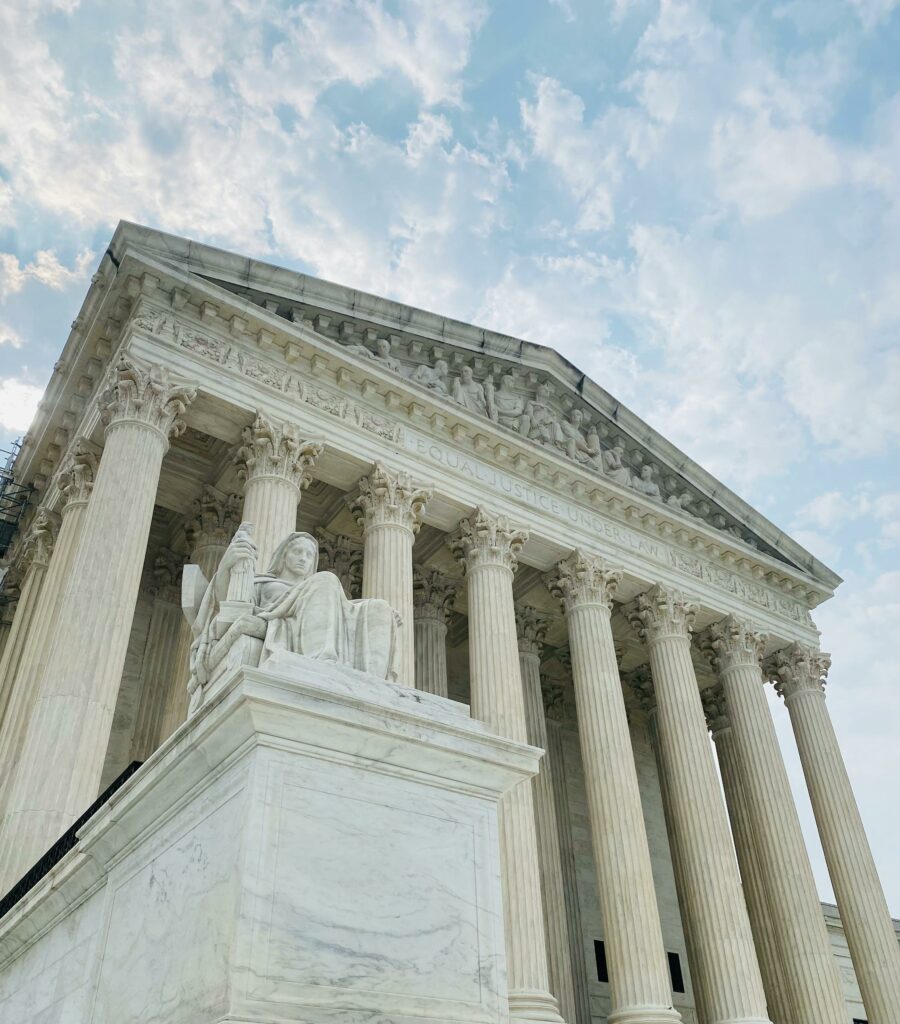U.S. Senator John Barrasso is applauding today’s United States Supreme Court ruling overturning the Chevron Doctrine, a decision that “will curb the power and authority of unaccountable federal agencies” the senior Senator from Wyoming said in a media release.
“Today’s Supreme Court ruling is a major victory for getting Washington out of Wyoming. For too long unelected, unaccountable Washington bureaucrats have gone unchecked. They abused the rulemaking process for decades. They ballooned the size of government and imposed on us a costly maze of burdensome political regulations. This ruling rightly curbs the power of rogue federal bureaucrats and puts it back into the hands of the American people,” Barrasso stated.
The Supreme Court overturned a 40-year-old precedent that has been a target of the right because it is seen as bolstering the power of “deep state,” which includes bureaucrats.
The decision to over turn the ruling evolved from a 1984 case, Chevron v. Natural Resources Defense Council, which involved a challenge to fisheries regulation.
The ruling was 6-3 with the conservative justices in the majority and liberal justices dissenting.
“Chevron is overruled,” Chief Justice John Roberts wrote in the majority opinion. “Courts must exercise their independent judgment in deciding whether an agency has acted within its statutory authority.”
Liberal Justice Elena Kagan wrote in dissent that a “longstanding precedent at the crux of administrative governance thus falls victim to a bald assertion of judicial authority.”
At the time of the decision, back during the Reagan presidency, Chevron was a win for the deregulatory efforts of the President’s administration, with the court ruling that judges should defer to federal agencies in interpreting the law when the language of a statute is ambiguous. That was initially seen as a benefit to Republican officials in the administration who wanted to make regulations less cumbersome and restrictive for businesses.
But Chevron has over the years become increasingly criticized on the right because of the claim that it gives too much power to agency bureaucrats to interpret the law.
Groups on the left, including environmental activists, have defended Chevron, in part because it gives leeway to address issues like climate change as well as drafting policies to combat it. This has frustrated conservative politicians like Barrasso who would like to see a greater shift back to states’ rights rather than having to be dictated to by the federal government agencies.
The underlying issue before the justices concerned a federal regulation that would require fishing vessel operators to help fund the cost of collecting data that would assist with fishery conservation and management.
Owners and operators of fishing vessels active in the herring fishery off the Atlantic coast challenged the 2020 rule applying to New England fisheries. Lower courts in both cases ruled in favor of the federal government.
The business owners argued that the National Marine Fisheries Service, the federal body that oversees ocean resources, did not have authority to issue the regulation under the 1976 Magnuson-Stevens Fishery Conservation and Management Act.
The rule implemented a monitoring program that vessel operators are required to fund. The challengers said that operators would have to pay up to $710 a day at certain times for independent observers to board their vessels and monitor operations. The cost would be burdensome for small owner-operators, the challengers said.
The fisheries dispute is one of several in the current court term in which the justices are considering attacks on federal agency power led by business interests and the conservative legal movement.
The Trump administration had embraced the war on “deep state” agency power, selecting judicial nominees in part based on their hostility to the federal bureaucracy. The Supreme Court’s conservative majority includes three Trump appointees: Gorsuch, Kavanaugh and Barrett.
The Supreme Court has already addressed the issue of agencies’ exerting broad power without clear congressional instructions from another angle in recent rulings that struck down President Joe Biden’s federal student loan debt relief plan, blocked his COVID-19 vaccination-or-test requirement for larger businesses, and curbed the EPA’s authority to limit carbon emissions from power plants.
Those cases did not rely on the Chevron analysis but instead said simply that on issues of broad national impact, explicit authorization from Congress was necessary, an approach known as the “major questions” doctrine.










